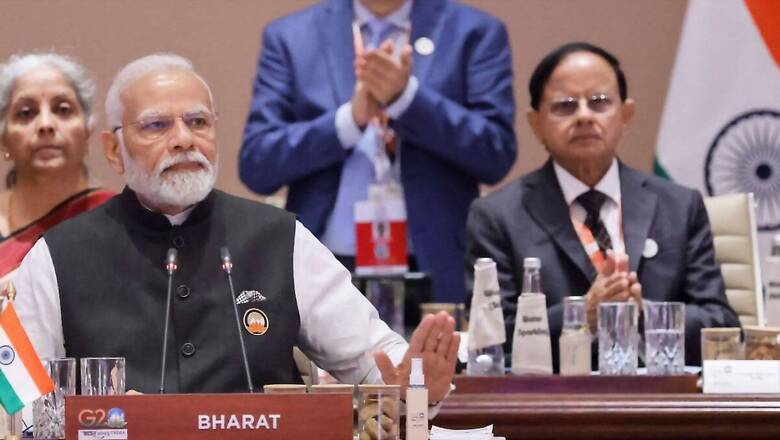
views
The G20 joint statement in its language calling for cessation of hostilities and restoration of peace in Ukraine signifies a major shift under India’s Presidency, which conveys a clear message that the G20 is not a platform to resolve geopolitical and security issues.
There is a significant shift in the terms used to describe the ongoing war, which has been referred to in the 2023 G20 Summit joint statement as “war in Ukraine” and not “war against Ukraine”, opposite to what was seen in Bali Declaration last year when Indonesia was the G20 President. This also signals a major climbdown by G7 and EU over language used to condemn the war.
The New Delhi Leaders’ Declaration did not directly condemn Russia for its role in the ongoing 2022 Russo-Ukrainian war. The leaders urged all parties to push for a “comprehensive, just, and durable peace in Ukraine”.
However, the G20 nations were very clear on the nuclear weapons issue and said that the “use, or threat of use, of nuclear weapons is inadmissible”. They also reminded member states to “refrain from the threat, or use of force, to seek territorial acquisition.”
Last year in Indonesia, the G20 referred to a United Nations resolution that strongly condemned “aggression by the Russian Federation against Ukraine”, unlike this year’s statement which took a more measured tone.
G20 India Sherpa Amitabh Kant on Saturday emphasised that India during its G20 Presidency achieved 100 percent consensus. Ukraine was mentioned four times in the 37 pages document.
“The New Delhi Leaders’ Declaration has 83 paras in all and all 83 paras have 100 percent consensus among all countries,” G20 Sherpa Amitabh Kant said. “All countries have unanimously agreed to the New Delhi Leaders’ Declaration and is a complete statement with 100% unanimity,” Kant further added, and said it brings all developing and developed countries and is the most ambitious presidency in the history of G20.
Western nations and the US have been pushing for stronger wording regarding Ukraine and Russia’s involvement in the conflict but the language used shows that a compromise was struck. It acknowledges one position agreed upon during the Nusa Dua summit which said that “most members strongly condemned the war,” but acknowledged the existence of “other views and different assessments of the situation.”
















Comments
0 comment